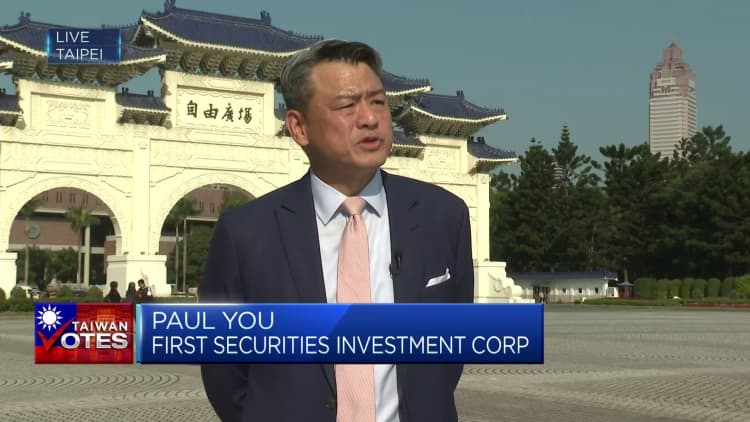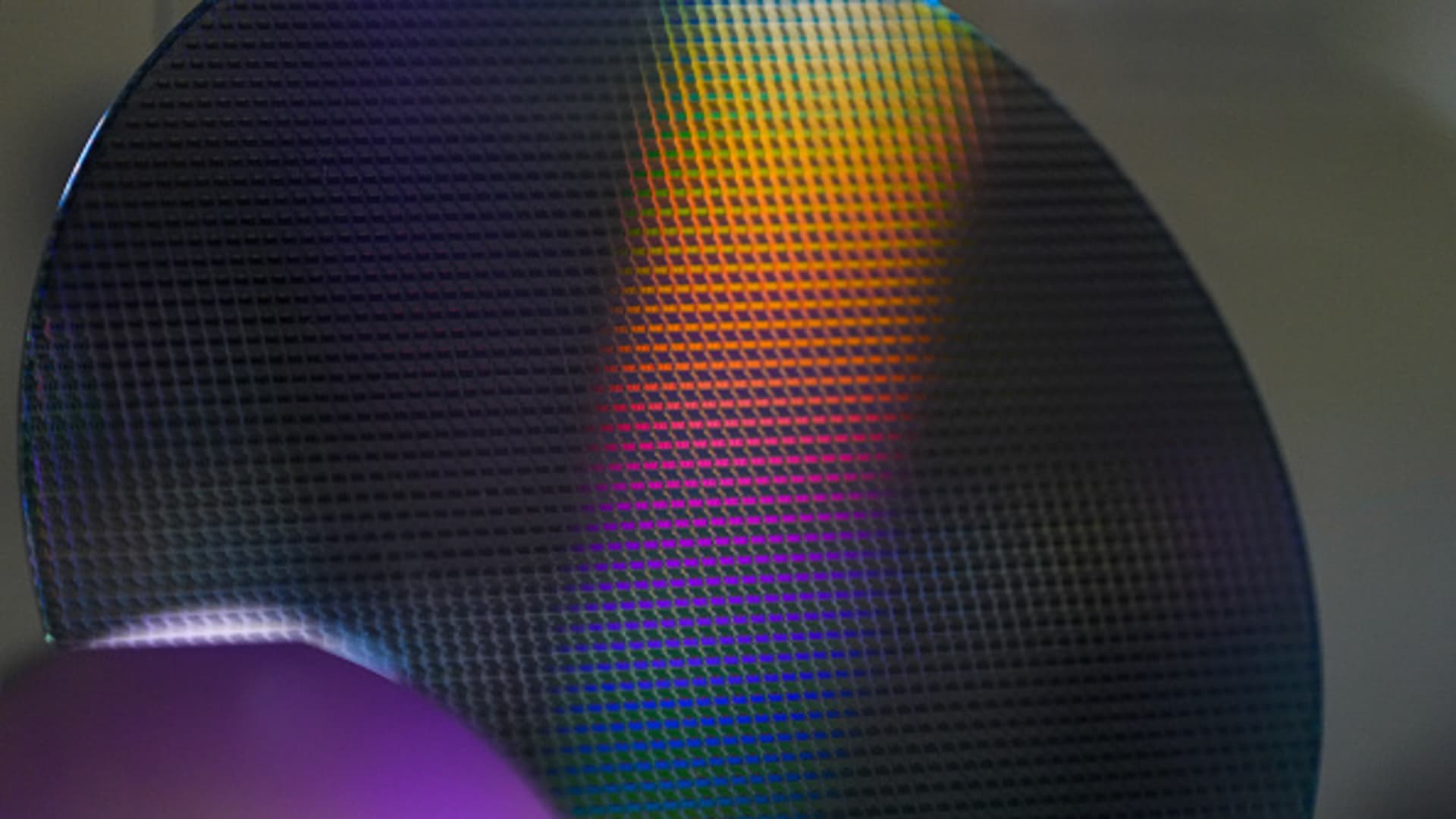
Taiwan should plan to diversify its economy away from semiconductors, given the risk that China might develop the capacity to make its own chips, Paul Cavey, an economist at East Asia Econ, told CNBC.
“Politicians really should be discussing more on … diversifying the economy away in terms of trying to encourage more industries to grow,” Cavey said on CNBC’s “Squawk Box Asia” Friday.
Taiwan’s share of global semiconductor foundry capacity stood at about 46% as of 2023, followed by China (26%), South Korea (12%), the U.S. (6%), and Japan (2%), according to TrendForce.
Much of Taiwan’s dominance can be attributed to Taiwan Semiconductor Manufacturing Co or TSMC, the world’s largest contract chip manufacturer that counts Apple and Nvidia among its biggest clients. TSMC produces the most advanced processors found in Apple’s iPhones.
“40% of [Taiwan’s] exports are now semiconductors. A lot of those are still going to China. And so if you have a situation where China does develop the capacity to make semiconductors itself, the impact on Taiwan’s economy is going to be very large,” Cavey told CNBC’s Emily Tan.
Taiwan exported electronic integrated circuits, or chips, worth over $47 billion to China in 2023, according to preliminary trade data.
According to TSMC’s third-quarter 2023 earnings report, China accounted for 12% of its net revenue in the third quarter of 2023, an increase from 8% in the same period a year ago. North America contributed 69% to the company’s net revenue.
“Achilles heel is something which is the strength of Taiwan,” said Cavey.
Efforts from Western countries such as the U.S. and the Netherlands to contain China’s chip tech through export restrictions has pushed the country to look at domestic firms for chip self-sufficiency in chips.
Revenue of China’s top 10 chip-equipment makers surged 39% in the first half of 2023 from a year earlier, according to Shanghai-based CINNO Research.
Traditionally, China has been dependent on foreign firms such as Dutch lithography systems’ manufacturer ASML for chip equipment, with Beijing lagging behind the U.S., South Korea and Taiwan in chip-related production. Earlier this month, ASML said that its license to ship some of its tools to China had been partially revoked by the Dutch government.
Paul You, chairman of First Securities Investment Corporation, said the global semiconductor industry including Taiwan’s could be at risk from the U.S.-China chip war.
“I do believe the escalation between U.S. and China, especially like the chip war, will become higher and higher and that will dampen the growth for the global semiconductor [industry].”

Taiwanese firms such as Apple iPhone assembler Hon Hai also known as Foxconn have been trying to diversify production away from China, You added.







